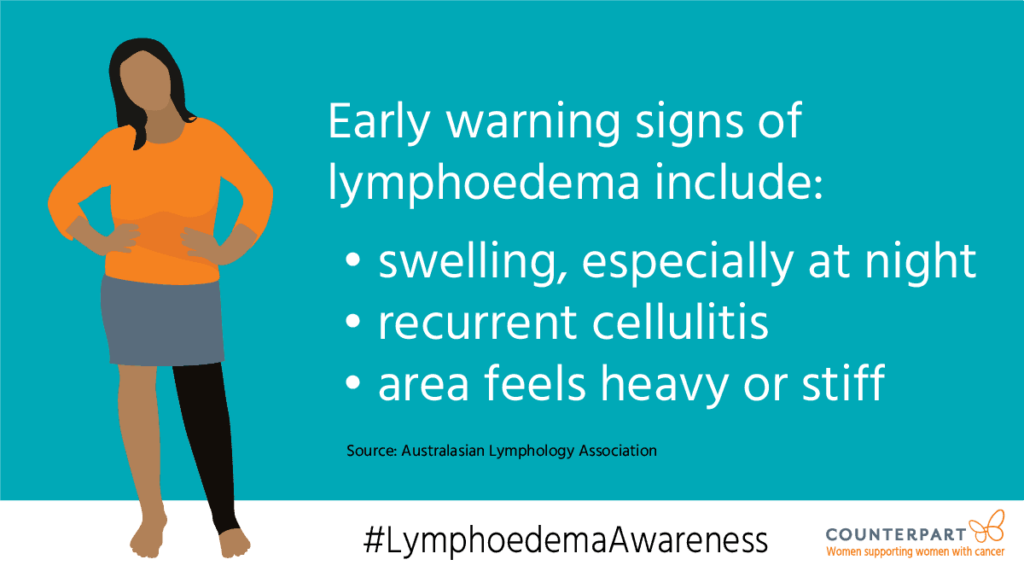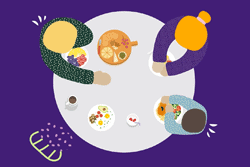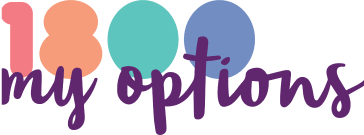Lymphoedema: what you need to know
March is Lymphoedema Awareness Month
Lymphoedema is a side effect of cancer treatment that affects around one in 5 women with breast or a gynaecological cancer. (Cancer Australia, 2022)
If you have experienced one of these cancers, it is important to know the risk factors, know the symptoms and know where to seek help.
What is lymphoedema?
The lymphatic system runs throughout our body and supports our immune system. A clear fluid called lymph carries nutrients and immune cells to all our cells and takes away waste. Lymph drains through small tubes that are similar to blood vessels and glands called lymph nodes, which helps filter the fluid before it returns to the blood stream.
When the lymphatic system doesn’t work properly, fluid can build up causing parts of our body to swell. In secondary lymphoedema, this happens because the lymphatic system has been damaged or blocked. This can be caused by cancer treatments, including surgery and radiotherapy. (Healthdirect, 2021)
Lymphoedema – signs and symptoms

Diagnosing lymphoedema early gives you the best chance of avoiding it developing into a severe form. According to the Australasian Lymphology Association (ALA), early warning signs can include:
- Swelling of a limb or other area. This may come or go, and can be made worse by overuse, staying in one position too long, tight clothing. It may be more obvious by the end of the day.
- Recurrent cellulitis (an infection of the skin)
- Feeling heavy or stiff in the affected body part
- Not being able to move the affected body part as much as before.
If you notice any of these signs, talk to your healthcare provider.
Getting help
An Accredited Lymphoedema Practitioner is a health professional who has shown that they have the knowledge and skills to provide the best advice and care to people affected by lymphoedema. You can find an Accredited Lymphoedema Practitioner on the ALA website.
A practitioner can help you to manage your lymphoedema. They will be able to provide you with advice about:
- caring for you skin
- exercises
- manual lymphatic drainage (if needed)
- compression garments (if advised)
If you talk to your GP about getting a Management Plan, you can be referred to an Accredited Lymphoedema Practitioner and may be eligible for Medicare rebates for up to five sessions. You can also ask your oncology team about what services are available.
More information
Australasian Lymphology Association website
Webinar recording: Self care for lymphoedema (recorded 9 March 22)
Webinar recording: Lymphoedema (recorded 2 March 21)
 We have published a number of new webinars which can be watched on our website. These include webinars held in recent weeks as well as ones held while our website was being updated in the second half of 2021.
We have published a number of new webinars which can be watched on our website. These include webinars held in recent weeks as well as ones held while our website was being updated in the second half of 2021. With many people in our communities catching Covid-19, Cancer Australia have put together information for people affected by cancer.
With many people in our communities catching Covid-19, Cancer Australia have put together information for people affected by cancer.






